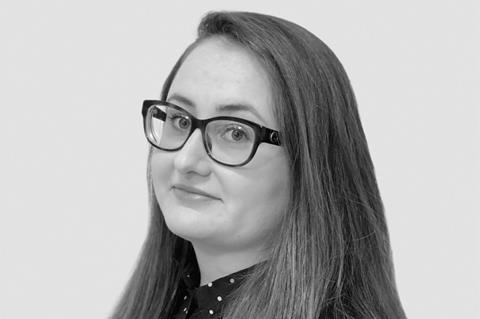As volunteer group Neurodiversikey launches a survey to find out how much support neurodiverse people in the law receive, three legal figures recount the anxiety of training and trying to fit in
How many people in the legal profession are neurodiverse? It is a question that has never been satisfactorily answered – or even asked.
The SRA’s annual diversity data survey asks whether respondents are disabled, but not what form their disability takes.
Volunteer-run group Neurodiversikey was set up last October to make the justice system and legal sector more inclusive. It is running the biggest ever survey of the profession to discover how many neurodiverse people are working in the sector, how well their needs are being met, and what can be done to offer more support.
‘There is a chasm in available data: it is generic and not based on a particular disability,’ says Neurodiversikey co-founder Danielle Gleicher-Bates. ‘It doesn’t matter how much you say you want to improve neurodiversity inclusion: if you don’t know your starting point and can’t measure it you can’t make things better.

‘Not everyone identifies as disabled, which is difficult when you are compiling data. Neurodivergent people in the profession generally are wary of disclosing they are neurodivergent. Their needs are not necessarily met or they have to fight for their needs to be met. There is still a pervasive stigma.’
The anonymous survey, aimed at all neurodivergent law students and legal professionals, is open until 12 March.
Gleicher-Bates, who was diagnosed as neurodiverse while training for the bar, believes the sector can be more accommodating to people with conditions such as autism, ADHD and dyslexia.
She cites the ‘unnecessary rigidity’ of arbitrary deadlines on law courses, or being set work which does not appear to have a purpose. She recalls missing an exam because the application form was unclear.
'It doesn’t matter how much you say you want to improve neurodiversity inclusion: if you don’t know your starting point and can’t measure it you can’t make things better'
Danielle Gleicher-Bates, Neurodiversikey
Trainee solicitor Amelia Platton (pictured below), who founded the ND Lawyer Project, found law courses too structured and lacking the flexibility she needed. Moving into the workplace, she says, was a huge source of anxiety. ‘I had no idea what to say and what was acceptable. I was genuinely very scared I would be looked down on or get negative feedback.’

Writing on LinkedIn about the first week of her training contract, Platton remembered phoning her parents and saying she had made a mistake.
‘I believed the reasonable adjustments I’d asked for were too burdensome, and people thought I was incompetent. I constantly switched between masking and unmasking, trying to find the right balance between looking “professional” and protecting my autistic well-being, but exhausted myself in the process.’
Platton worried, for example, that because she does not read tone into emails this might come across as rude. Then there was the socialising, which seemed to be such a big part of the process of becoming a lawyer. Platton recalled crying at one networking event. These can be ‘overwhelming’ without certain adjustments, such as everyone wearing name tags or people being assigned to the same part of the room.
Emma Hamnett, a paralegal and neurodiversity champion at national firm Fletchers, says her condition was ‘welcomed with open arms’ at her current workplace, but that was not always the case.
‘I have been told at firms not to say anything about my neurodiversity,’ she says. ‘You learn from experience not to change and just to fit in.’
She comes up with ways that neurodiverse people can be comfortable in their work environment – whether that be through finding a quieter workspace or using different equipment (some neurodiverse colleagues, she says, struggle with working on white paper).
‘Each person is unique in their own skill-set and style,’ adds Hamnett. ‘Neurodiversity was not recognised when I started and was treated as a disability. We are not disabled, we are neurodiverse.’

Gleicher-Bates advises that firms should take the time to ask the individual what they need – pointing out there are variations even between people of the same neurotype.
‘Ask them and listen to them and actually take it on board. We are the experts of our own experience.’
A quiet place or noise-cancelling headphones might be a solution, but not in all cases, she adds.
‘I can’t tap into a single conversation if there is something else going on,’ she says. ‘But you will also find people who need the open plan for what is called body doubling, where somebody is working in your vicinity which makes it easier to stay on task.’
Platton warns against what she calls ‘misplaced paternalism’ in the workplace, reinforcing the point that simply listening to staff and considering their needs is essential. She adds: ‘Choosing a career where change and uncertainty seem inevitable might seem counterintuitive, but it doesn’t mean autistic and neurodivergent people can’t be lawyers.’
The Neurodiversikey survey is at neurodiversikey.com/surveys/




































2 Readers' comments